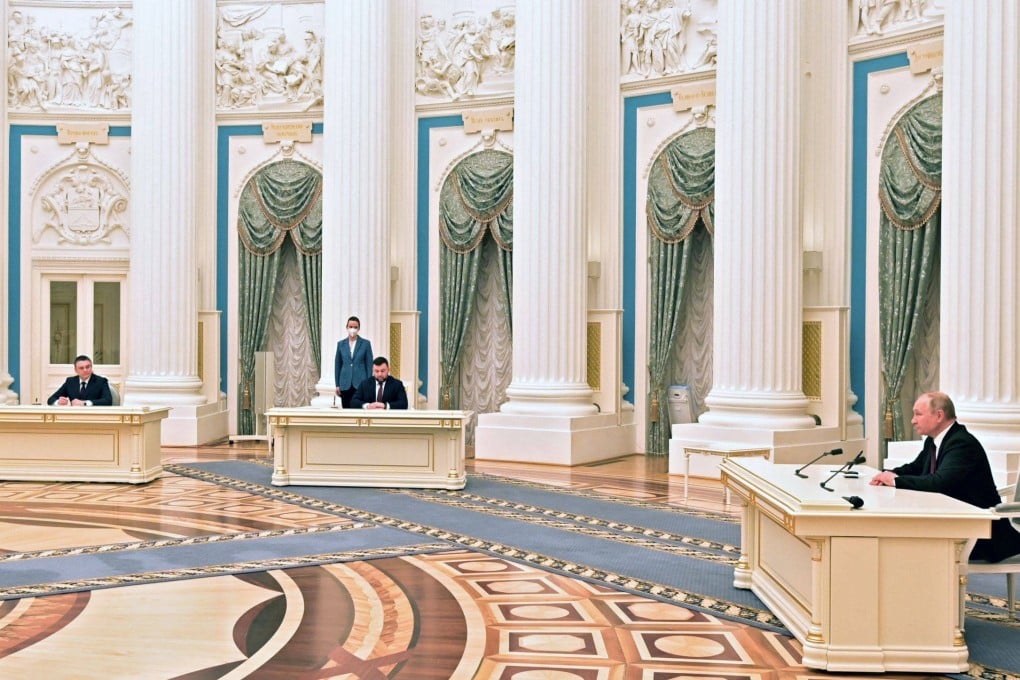Opinion | The grand narrative driving Putin’s vision of a strong and spiritually pure Russia
- Having inherited the narrative of victimhood at foreign hands and the need for a strongman leader to realise Russia’s destined greatness, Putin is only putting it into practice
- Moscow’s actions on Ukraine and Georgia can only be fully understood in this context

In doing this, the Russian president is following the same game plan that he used in the five-day war with Georgia in 2008, meaning that the next step will be calls by ethnic Russians in these regions for Moscow to rescue them from alleged “genocide” by Ukrainians. But this is a much more serious conflict than in Georgia and is likely to lead to much more deadly and long-term consequences.

A key figure in shaping Putin’s ideas on this issue is Ivan Ilyin (1883-1954), a philosopher who left Russia after the Russian Revolution and lived most of his life in Germany and Switzerland. Putin routinely quotes Ilyin, has instructed Russian elites to study his writings, and has brought Ilyin’s archives from Michigan State University and his remains from Switzerland to Russia.
In Ilyin’s view, Russia is an innocent and pure nation that has repeatedly been victimised by invasions and the infiltration of alien ideas designed to weaken and destroy the nation. As outlined by Western historians such as Timothy Snyder, Ilyin provided a metaphysical and moral justification for an authoritarian state of the sort that Putin is now trying to build.
Such a state rejects representative democracy and the rule of law as direct threats to Russian purity. Instead, what’s needed is an indomitable leader, fortified by strong Russian Orthodox spirituality, who is unafraid to take brutal action to repel foreign enemies and root out domestic ones.
